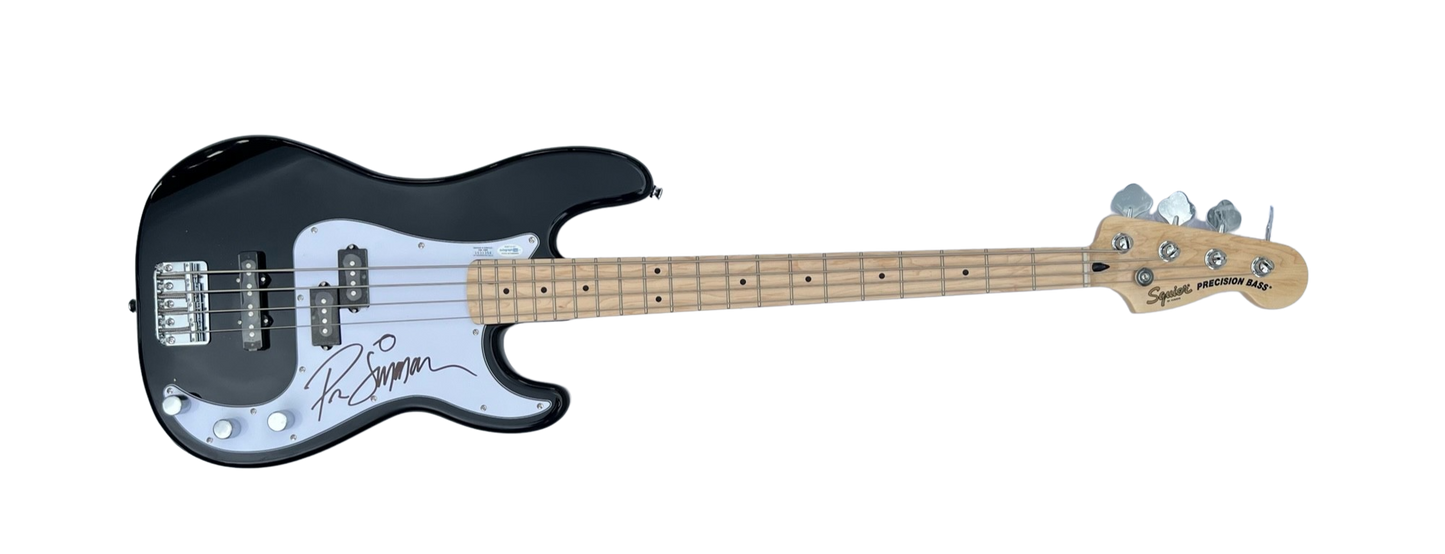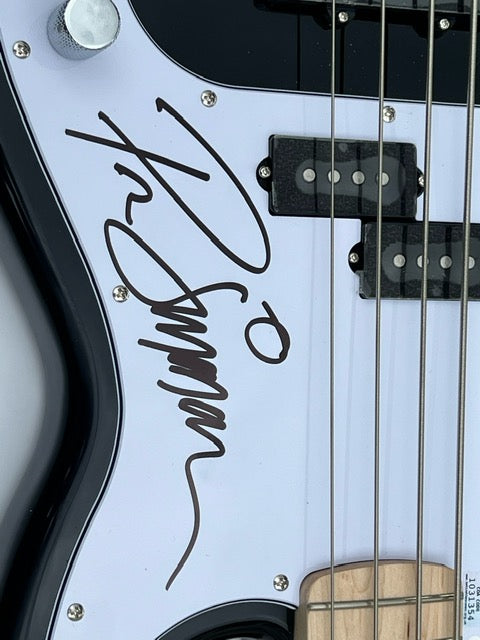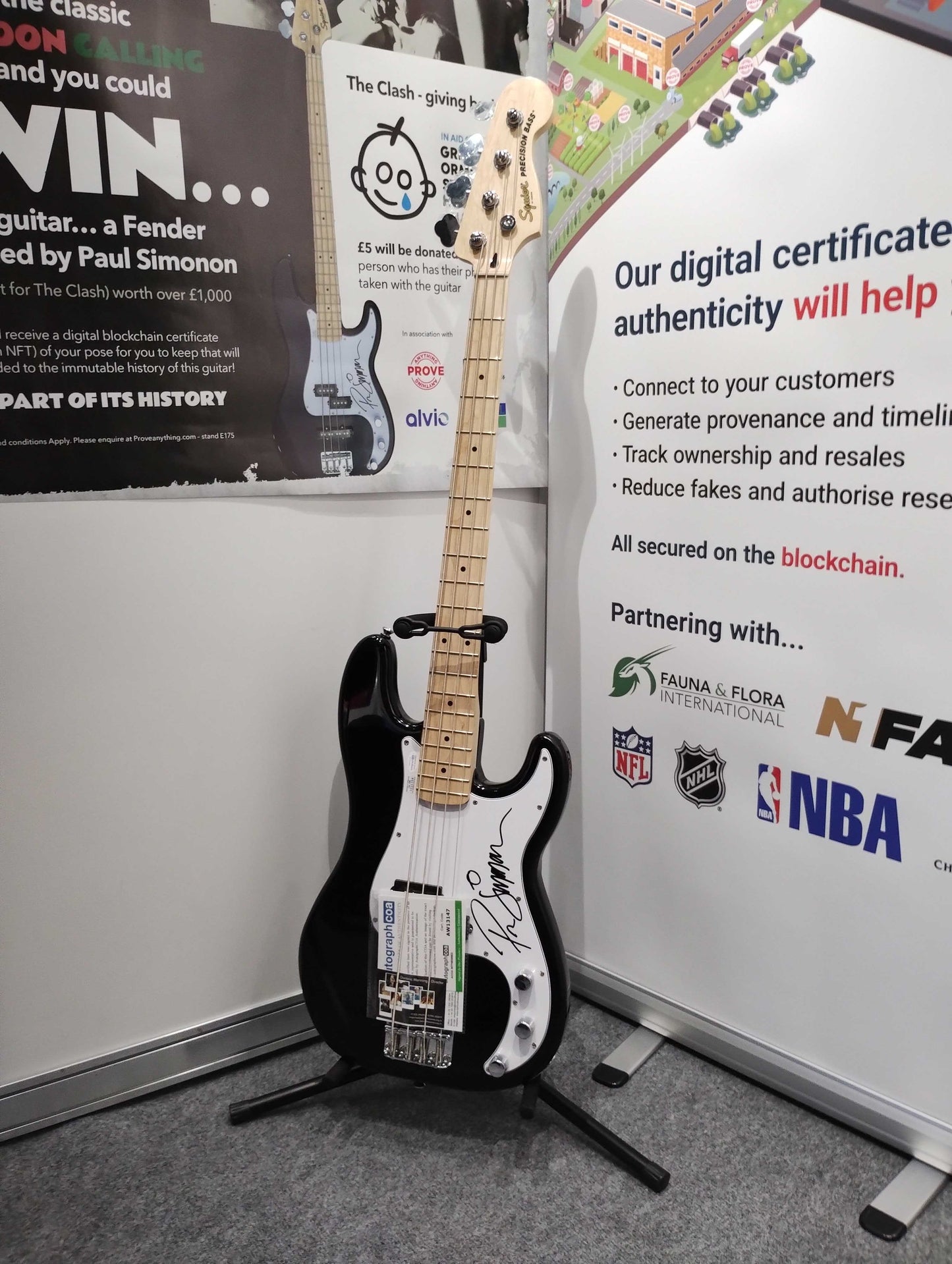Giving Back
The Guitar Signed by Paul in London on the 12th August 2022.
The Guitar Signed by Paul in London on the 12th August 2022.
The Squier Affinity Series Precision Bass PJ MN Olympic White at a glance:
- 4-string electric bass from the Squier Affinity Series.
- High gloss finish in Olympic White
- Bolt-on construction with 34" long scale length (864 mm)
- Poplar body
- Bolted maple neck
- Maple fingerboard with dot inlays
- C-neck profile
- One Squier ceramic split-coil pickup in center position
- One Squier ceramic single-coil pickup in bridge position
- Passive electronics with separate volume controls for each pickup and treble trim
- Squier 4-saddle standard bass bridge
- Squier vintage-style machine heads
The guitar was signed by Paul in London on the 12th August 2022.



This Fender guitar signed by the Clash bassist Paul Simonon is part of the ‘Giving Back’ collection of signed memorabilia by living members of The Clash.
The Clash were an English rock band formed in London in 1976. They were key players in the original wave of British punk rock. Billed as "The Only Band That Matters", they also contributed to the post-punk and new wave movements that emerged in the wake of punk and employed elements of a variety of genres including reggae, dub, funk, ska, and rockabilly. For most of their recording career, The Clash consisted of lead vocalist and rhythm guitarist Joe Strummer, lead guitarist and vocalist Mick Jones, bassist Paul Simonon, and drummer Nicky "Topper" Headon.
The Clash achieved critical and commercial success in the United Kingdom with the release of their self-titled debut album, The Clash (1977) and their second album, Give 'Em Enough Rope (1978).
Their experimental third album, London Calling, released in the UK in December 1979, earned them popularity in the United States when it was released there the following month. A decade later, Rolling Stone named it the best album of the 1980s.
Following continued musical experimentation on their fourth album, Sandinista! (1980), the band reached new heights of success with the release of Combat Rock (1982), which spawned the US top 10 hit "Rock the Casbah", helping the album to achieve a 2× Platinum certification there. A final album, Cut the Crap, was released in 1985 with a new line-up. The Clash disbanded in 1986.
In January 2003, shortly after the death of Joe Strummer, the band—including original drummer Terry Chimes—were inducted into the Rock and Roll Hall of Fame. In 2004, Rolling Stone ranked the Clash number 28 on its list of the "100 Greatest Artists of All Time".



